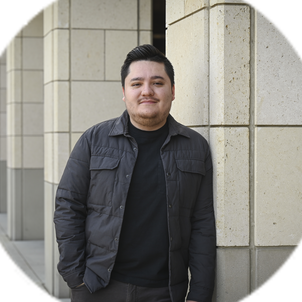We lived in a predominantly white and wealthy suburb of Phoenix, Arizona, where I really never saw individuals who looked like me, which often left me feeling out of place.
Phoenix is where my interest in both water and equity began. As a kid I was obsessed with geography, urban planning, and city infrastructure. I used to go through city council meeting minutes to try and figure out what new suburb was being built down the road or what new business was coming to my neighborhood. By the time I was a teenager, however, my curiosity turned to critique, because I started to better understand the drought conditions that Arizona was facing. I no longer saw these new developments as progressive, but as contributing to an urban sprawl that was depleting the water supply of my home state. At the same time, I was also learning about the environmental injustices my parents had faced growing up in Ghana. They talked in particular about water inequity, which included both scarcity and terrible water quality.
I came to truly appreciate water, and my high school environmental science and physics courses introduced me to engineering, and how engineers can actually solve some of these problems. Today, researching water remediation, I feel like I’ve come full circle.
I work in the lab of Professor William Tarpeh, where I explore both the removal of environmental pollutants in wastewater and the recovery and transformation of those pollutants using an electrochemical process. In our lab we look at things like human wastewater, industrial wastewater with high lithium content, and water containing microplastics. A lot of our work involves the removal of nitrates and ammonia, which are common pollutants that can cause algal blooms. Today about 80 percent of the world’s wastewater goes untreated and is simply expelled out into the natural environment where it causes a host of health and environmental problems. Our goal is to not only remove the pollutants from the environment, but also to transform them into other chemicals or commodities that will be useful, such as phosphate into fertilizer or lithium recovery for electric car batteries.
One of the things I most enjoy about my work is that the Tarpeh Lab is very equity focused. When we build the cell reactors that we use in our research and design our experiments, we think about how these processes might be used in the most remote or marginalized communities both inside and outside the U.S. For example, not everyone has access to electricity, so a colleague in my lab is looking at using solar power to drive these reactions. I’m happy that Stanford encourages this kind of environment, because I believe engineering can play a crucial role in social equity.
As one of relatively few Black engineering students and a first-generation college student, I struggled for a long time with imposter syndrome, and wondered if I’d made the right decision coming here. But I’m so happy with the choice I made. Stanford is an amazing place, and I’ve met a lot of wonderful people here, including my advisor, Professor Tarpeh, who’s helped me fully understand the PhD process, and Luz M. Jiménez Ruvalcaba, with whom I worked last summer on the Stanford Undergraduate Research Fellowship program. I’ve met many of my closest friends at the Black Graduate Student Association, and I’ve taken advantage of many resources outside of Stanford, including an internship with an environmental justice nonprofit in Menlo Park through the Haas Center for Public Service.
I was very excited to be asked to speak at this year’s Dean’s Welcome Event, an annual tradition that introduces new graduate students to Stanford Engineering. I hope my own experience might serve to reflect the unique journeys of all our incoming students, and I hope to share with them the goals I think are important: exploring your passions and not confining yourself to a certain path; working to improve Stanford by acknowledging and calling out injustices that exist on campus; and creating your own constellation of mentors while you’re here. We need to be grateful for those who helped us get here, and open doors to others who want to attend.
Related spotlights

Adrienne Propp

Lara Weed

